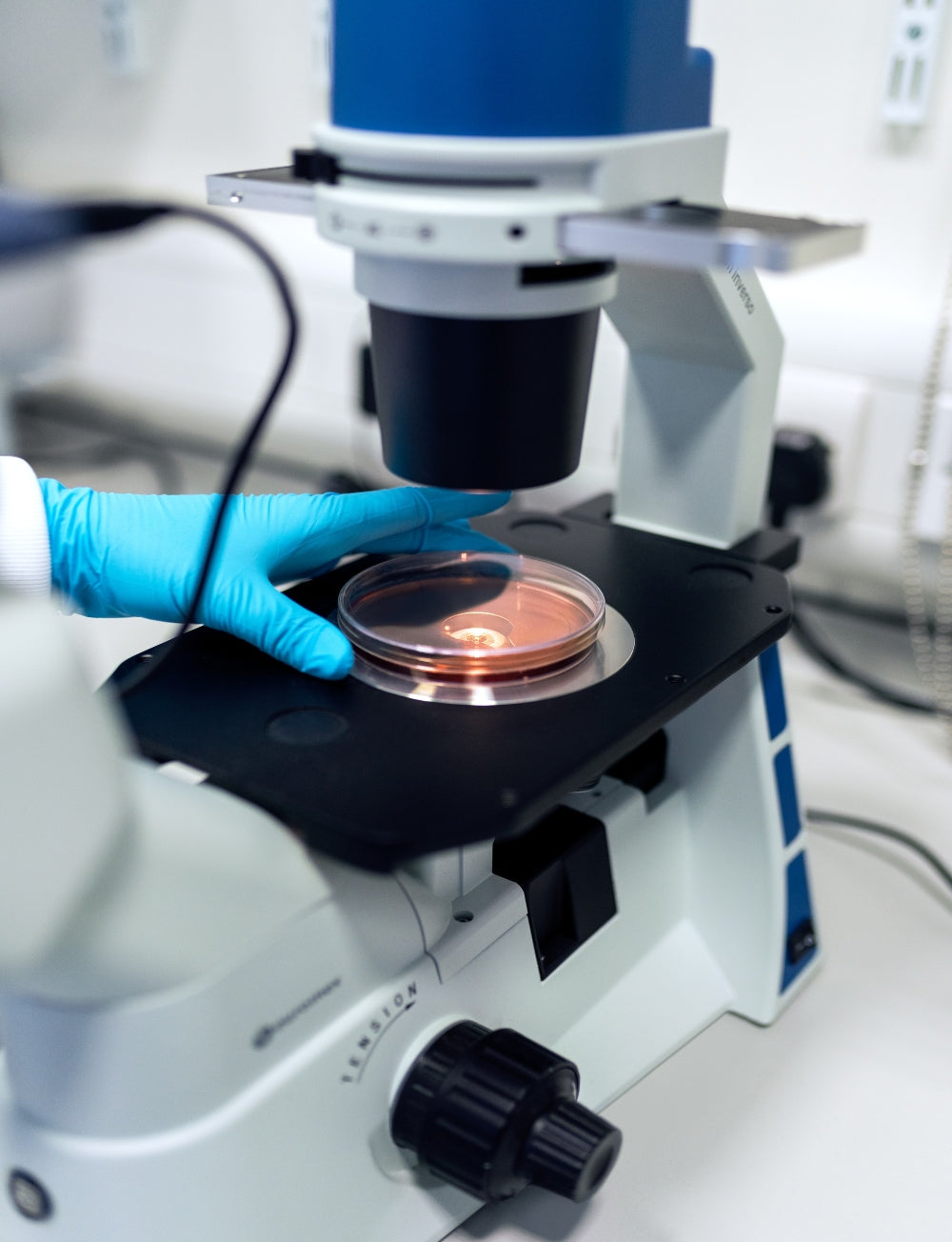Female IVF Foundation Support Pack
£116.75 Save £20.60
Intrauterine insemination (IUI) is a type of artificial insemination to increase the chances of fertilisation.

IUI stands for Intrauterine Insemination, which is a fertility treatment where prepared sperm is placed directly into the uterus to increase the chances of fertilisation for couples struggling with infertility.
Unexplained infertility: When a couple has been unable to conceive despite a thorough evaluation that does not identify any specific fertility issues, IUI may be considered as a treatment option.
Mild male factor infertility: If you have a low sperm count, decreased sperm motility, or other mild sperm abnormalities, IUI may be a viable treatment option to increase the chances of successful fertilisation.
Cervical factor infertility: In some cases, the cervical mucus may be hostile to sperm, making it difficult for them to pass through and reach the uterus. IUI can bypass this issue by placing the sperm directly into the uterus.
Same-sex couples or individuals: IUI may be used by same-sex couples or individuals to conceive using donor sperm as a means to achieve pregnancy.
IUI is generally considered a simple and non-invasive fertility treatment, aiming to increase the chances of fertilisation by placing sperm directly into the uterus, bypassing potential barriers such as cervical mucus, and optimizing the chances of conception for couples facing fertility issues.

Your fertility specialist will assess the medical history and fertility status of both partners, including hormonal levels, semen analysis, and assessment of the fallopian tubes and uterus.

Menstrual cycles may be monitored through blood tests and ultrasound scans to determine the optimal time for insemination. Medications may be prescribed to stimulate the ovaries and promote the growth of multiple eggs, if needed. Donor sperm, either from a known or anonymous donor, may be used and prepared in the laboratory.

On the day of the IUI procedure, the prepared sperm is placed into the woman's uterus using a thin catheter, which is inserted through the cervix. The procedure is usually painless and takes only a few minutes to complete.

After the insemination, it is recommended to rest for a short time before resuming normal activities. After two weeks you can take a pregnancy test to determine if the IUI was successful.
The success rates of IUI vary depending on various factors, such as the couple's age, overall health, cause of infertility, and the number of cycles attempted. Success rates may range from 5-25% per cycle, but it's best to consult with a fertility specialist for personalised information.
IUI is generally considered a safe and minimally invasive procedure, but potential risks and side effects may include discomfort during the procedure, risk of multiple pregnancies, and rare instances of infection or damage to the reproductive organs.
The number of IUI cycles recommended before considering other fertility treatments may vary depending on individual circumstances. It's best to consult with a fertility specialist for personalised advice, as the number of cycles attempted may depend on factors such as age, fertility diagnosis, and previous treatment history.
Some lifestyle changes, such as maintaining a healthy diet, regular exercise, managing stress, and avoiding smoking or excessive alcohol consumption, may help improve overall fertility.
There are a number of vitamins and minerals that are vital for supporting reproductive health. We recommend our Ultimate Egg Health Pack for women looking to support their egg health and regular cycles, and the Male Fertility Plus Pack for men looking to support their sperm health on the build up and during IUI.

It can be difficult to know which supplements to take throughout your fertility journey. Our product recommendation quiz will inform you of the best products to take for your specific stage.